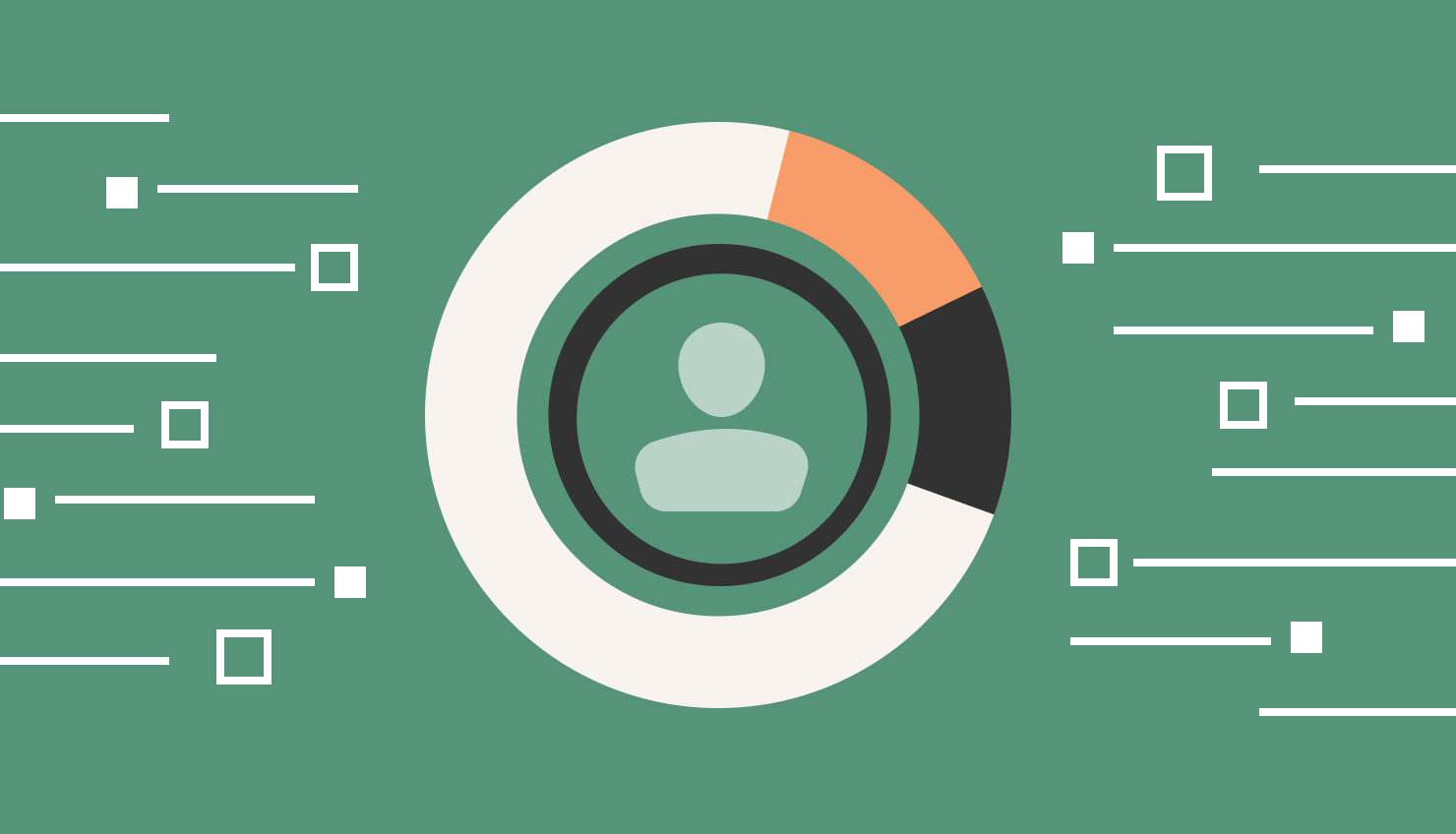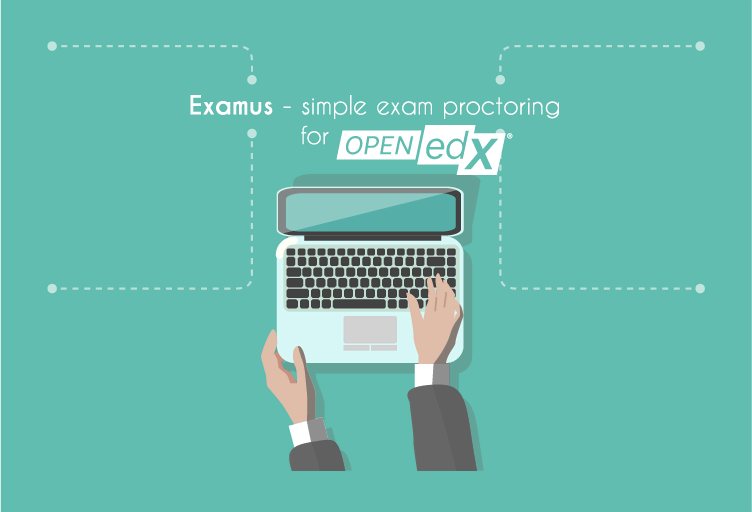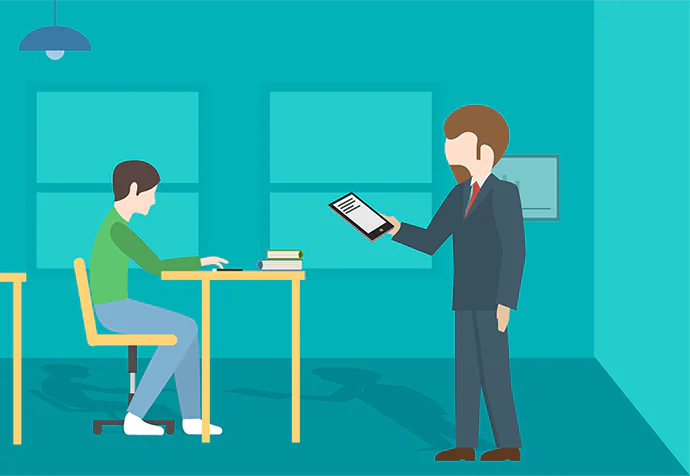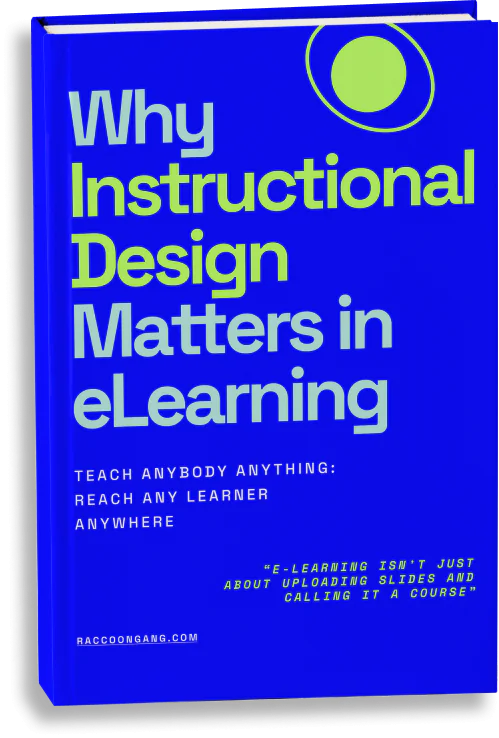Let’s shed light on all the details regarding the issues that exist due to proctored online tests and exams, examine various formats of online proctoring, and review multiple use cases in continuous education for universities.
Proctored tests or proctoring refers to an examination mechanism that is used to verify the credibility of the test applicants and prevent them from cheating. For this purpose, the services of a proctor who remains present throughout the test are acquired.
A proctor is a professional who possesses the required qualifications and has undergone the relevant training to conduct student authentication and stop them from indulging in any kind of cheating. A proctored exam is an exam where you are being monitored by an authorized professional. Additionally, there’s one more reference for these types of proctoring.
For over a decade now, our educational specialists at Raccoon Gang have been helping educational businesses and providers set up end-to-end learning management systems following their specific needs. Online and offline proctoring solutions have been in our focus more than once. We’ve developed an On-campus proctoring system and Examus proctoring integration, among our other projects.
Key takeaways:
- There are three major types of online proctoring:
- live proctoring, where a human proctor supervises in real time;
- recorded proctoring, where later the sessions are reviewed;
- fully automated proctoring, which uses artificial intelligence to flag suspicious activities.
- Online proctoring solutions, such as Proctortrack, Proctorio, and Honorlock, offer unique features like AI-powered monitoring, identity verification, and secure browser lockdowns.
- There are pricing models to suit different needs: pay-per-exam, subscription-based, and tiered options. Pricing can range as low as $5 per exam to over $30+ per exam.
What Is Online Proctoring?
Online proctoring is a digital method of monitoring exams that ensures test integrity and prevents cheating. It is conducted via online software that enables course participants and students to sit for tests from any location. However, it must be dependable and devoid of any fraudulent activity.
To address these concerns, monitoring software keeps an eye on you. A qualified proctor supervises the process, either in real-time or through recorded footage, verifying the student’s identity and ensuring the exam is completed without any fraud.
“Live proctoring allows proctors to control the process of exam completion, revise the previous student’s attempts, approve or reject the current attempt, and comment on their decisions. It is a great alternative to fully online proctoring. However, it is more pricey and resource-consuming, so in many cases online proctoring, or a hybrid system, turns out to be a better solution.” — Peter Koblyakov, Co-founder at Raccoon Gang.
Usually, online proctoring solutions involve several key processes to ensure a secure and seamless exam experience for both students and institutions. Here’s a breakdown of the basic steps.
- Setup
Before the exam, students must install to their devices the appropriate proctoring software. The application usually has the functions of screen sharing, webcam access, and system monitoring to prohibit cheating.
The system may also require the student to do an identity verification process, like presenting a government-issued ID, to confirm their identity. Some platforms use AI face recognition technology for extra safety. Moreover, the testing environment, for example, the room or workspace, may have to meet some conditions, like no notes or unauthorized devices being present.
- Monitoring
A student is always monitored by either a proctor in real-time or an automated software during the exam. In live proctoring, a webcam and microphone are used during the entire exam, to make sure the student follows the exam rules. However, some AI-powered monitoring systems first ensure that the test-taker’s facial expressions and eye movements are not suspicious so that the software will not track any non-compliance.
The systems can even tell whether the test-taker stays within the exam window, uses any unauthorized programs, or is interacting with someone in the room.
- Test security
Proctoring software restricts functions on the computer like taking screenshots, using multiple tabs, or accessing other applications to secure the integrity of the exam. Additionally, proctors or AI tools govern any irregularities such as suspicious background noise or sudden changes in student behavior.
In certain situations, the exam session may be recorded, and later, administrators can analyze the recorded data to investigate any incidents that were flagged.
Types of Online Proctoring
The solution is in the choice, and an online exam can be well-policed against cheating. Online proctoring systems can be tailored to a range of needs, whereby the level of monitoring or security options greatly varies. Indeed, there are three main types of online proctoring, each designed to fit different testing scenarios and flexible enough to accommodate students and institutions depending on the required level of supervision.
Live Proctoring
Live proctoring is similar to a real-life classroom scenario. An online proctor monitors you throughout the exam. In case they have any suspicions, they may intervene, similar to a real-world classroom setting. It’s worth noting that here you will be required to book the exam in advance to find out whether a proctor can be assigned for your test.
This is a good model as it overcomes the location limitation that exists in proctoring. Both the proctor and the test taker can come online from any place.
Pros:
- It ensures greater security and responsibility.
- A proctor can respond instantly to possible cheating.
- Proctors can assist students with any technical or test-related issues.
Cons:
- The cost of the live proctor is one major drawback of the system if the volume of test-takers is huge because a proctor must provide separate attention to each student.
- It has the same amount of human involvement as offline proctoring does.
- It needs to be ‘scheduled’.
Recorded Proctoring
As the name suggests, there’s no real-time monitoring in this method. On the contrary, it records the candidate’s audio-video and screen share feeds of the whole test.
Authorized personnel go through these recordings and use annotations to mark any suspicious movement or activity.
This is a good model because it doesn’t only overcome location limitations, but also removes the scheduling part. However, humans still needed to review the footage, and therefore it remains expensive to a considerable extent. Remote Proctor (from Software Secure Inc.) uses this model.
Pros:
- This option is more cost-effective than live proctoring as it requires fewer proctors.
- Allows for a thorough review of the testing session to identify any missed issues.
- Can be used for exams with large numbers of test-takers.
Cons:
- It won’t allow for immediate intervention in case of cheating.
- It requires additional time and resources to record the review.
- It may not be suitable for exams that require real-time interaction with a proctor.
Automated Proctoring
Automated proctoring is a sophisticated type of proctoring. It guarantees that the test taker concentrates on the exam as it involves the use of software to detect any form of fraudulent activity. It can identify if another person is present in the room or if the test taker is using a tool or software in the background.
If any suspicious behavior is found, an alert is sent to the proctor, who will review it and make a decision. In addition, it performs student authentication through face recognition.
The good thing about this model is that it overcomes all the challenges that were prevalent in the previous forms of online proctoring. This means that there are no restrictions when it comes to location and scheduling and there’s no dependence on a human to review the feeds. This makes it more scalable and affordable.
Pros:
- Automated proctoring is easily scalable, making this particularly ideal for those institutions with a large number of test-takers.
- It usually tends to be the most budget-friendly as there is no need for a human proctor.
- It gives the green light for quicker processing by AI algorithms that flag issues, hence allowing more immediate reviews of tests.
Cons:
- AI may misinterpret harmless actions like glancing away from the screen as an attempt to cheat and hence may flag when there really is no need to do so.
- Any automated system is devoid of nuance and context instilled by human proctors about what constitutes cheating and what does not.
- Automated systems depend so much on technology; hence, any technical glitches may affect monitoring accuracy.
In the last two decades, there has been a lot of development in online proctoring software. Since online tests are the most common type of testing where candidates are evaluated based on their domain knowledge, proctoring services are becoming more popular. Such tests are also conducted to assess a candidate’s behavioral profile or understand their learning ability.
Online Proctoring Tools and Services
With the increase in demand for remote testing, there is also an increased demand for reliable online proctoring tools. These platforms provide institutions with secure ways to maintain exam integrity and ensure that students can take smooth tests.
The best online proctoring software offers a combination of robust monitoring, user-friendly interfaces, and seamless integrations with learning management systems. A summary of several of the most usable online proctoring services that exist today is given here, each with different features that make them unique for the type of testing required.
Proctortrack
Proctortrack is a powerful online proctoring tool that uses AI and biometric data to ensure exam security. It continuously monitors student behavior during exams to detect and flag any suspicious activities.
Features:
- AI-powered proctoring with real-time monitoring
- Biometric identity verification for added security
- Comprehensive reporting and analytics for post-exam review
- Browser lockdown features to prevent unauthorized access
Price: Proctortrack pricing is customizable, starting around $5 per exam for automated proctoring and going higher for live options.
Proctorio
Proctorio offers identity verification and remote proctoring services to over 4,000 higher education, K-12, corporate, and federal institutions around the world. It is a fully automated, AI-based online proctoring system designed to protect exam integrity while respecting user privacy. It offers customizable proctoring options and integrates easily into most LMS platforms, providing a secure and flexible testing environment.
Features:
- AI-based proctoring with customizable settings and immediate results
- Automated exam recording with advanced behavior detection
- Customizable lockdown features to prevent unauthorized access
- Different LMS integrations with automated grading
Price: Proctorio offers a pay-per-use model with flexible pricing based on the number of exams, generally starting around $5-8 per exam.
Examus
Examus is an AI-powered online proctoring platform designed to ensure the security and integrity of remote exams. Its automated system uses facial recognition and behavior analysis to detect potential cheating and fraud during the exam process.
Features:
- AI-driven facial recognition to verify the identity of test-takers
- Automated behavior monitoring to detect suspicious activities
- Real-time alerts for proctors when unusual activity is detected
- Easy integration with various LMS platforms
Price: Examus offers customized pricing based on the number of test-takers and the level of proctoring required, starting at approximately $$0.5 to $5 per exam for automated services.
Honorlock
Honorlock provides a unique blend of AI and live proctoring, offering flexibility for higher education institutions and professional education programs. Known for its innovative “Search and Destroy” feature, it can prevent students from accessing exam answers online.
Features:
- AI-driven proctoring with live proctor intervention
- “Search and Destroy” feature that prevents students from accessing exam answers
- Real-time browser lockdown and monitoring
- On-demand proctoring services
Price: Honorlock typically charges around $10-15 per exam, depending on the level of monitoring required.
Talview
Talview specializes in revolutionizing organizational interview and exam processes through its GenAI technology, emphasizing integrity, efficiency, and fairness. The platform is designed to support educational institutions and businesses alike, providing a secure, scalable solution with real-time test supervision and post-exam analytics.
Features:
- AI-powered proctoring to detect suspicious behavior
- Live and recorded proctoring options
- Real-time ID verification and authentication
- Detailed post-exam reports with analytics
- Seamless integration with popular LMS platforms
Price: Talview offers flexible pricing based on the type of proctoring and the number of test-takers, starting at around $10 per exam for automated proctoring, while yearly plans cost starting from $25 000 per year. Custom pricing is available for large-scale and live proctoring services.
How Much Does Online Proctoring Cost?
When it comes to online proctoring, costs can vary significantly depending on the platform, the level of monitoring required, and the volume of tests administered. Typically, online proctoring services offer flexible pricing models designed to meet the needs of different institutions and organizations.
If you go for Proctortrack, it can cost you $5 per one exam hour. Similarly, Examus offers greater flexibility, where one exam hour can cost you anywhere from $0.5 to $5, based on your chosen partnership model.
Common Pricing Models
There are a few common pricing models that usually define online proctoring costs:
| Pricing models | Proctoring costs |
| Pay-per-Exam | This is charged per exam, and estimates range from $5 to $15 for automated proctoring and $15 to $30+ for live proctored. |
| Subscription | This finds its best application when the volume of usage is very high. The subscription model allows unlimited examinations through payment of a monthly or yearly subscription fee. |
| Tiered pricing | Here you can choose different proctoring levels based on the needs of exam security — automated, live, and hybrid. |
| Per-student | A flat fee per student, regardless of the number of exams administered. |
While most online proctoring platforms have transparent pricing models, there may be hidden costs to consider:
- Hardware requirements. Ensure you have the necessary hardware (e.g., computers and webcams) to use the proctoring platform. If you need to purchase new equipment, this can add to the overall cost.
- Internet connection. A reliable internet connection is essential for online proctoring. If you need to upgrade your internet service or purchase data plans, this can incur additional costs.
- Training and support. Some platforms may offer training or support services that come at an extra cost.
Online Proctoring Companies. A Side-by-Side Comparison
To help you choose the best solution, we’ve put together a side-by-side comparison of the top online proctoring companies. These simple infographics break down common functions, management tools, and violation detection for each service, allowing you to quickly identify which online proctoring system suits your needs. From live monitoring to automated solutions, you’ll find everything you need to make an informed decision at a glance.
Common Functions Comparison
Management Tools Comparison
Violations Detection Comparison
Functional Block (LockDown) Comparison
Online Proctoring Exam Experience
There are several critical stages in the process of taking an exam via an online proctoring system to ensure security and fairness. Below, we are going to break down each of them for you.
- Pre-exam setup
You will be downloading the necessary software, and verifying your identity before the test in most cases. ID checking is necessary, as well as ensuring the environment around you completely meets the set criteria by the platform, such as no unauthorized material and people present in the room.
- Webcam, screen, and audio monitoring
During the online proctoring exam, the system or live proctor will monitor you through your webcam, microphone, and screen. This ensures that there is no cheating or suspicious activity.
- Post-test review
Once the test has been completed, any events tagged by AI or live proctors are reviewed for violations. Automated proctoring utilizes AI algorithms to flag unusual behavior for further evaluation.
Final Thoughts
Certification centers and educational institutions rely on various techniques to conduct online examination processes. For instance, some opt to have their own built-in assessment features via Learning Management Systems (LMS), whereas others proceed by creating their own tailored proctoring centers. That is why Raccoon Gang created an On-Campus proctoring system using Open edX LMS to help universities and other educational institutions verify the students’ knowledge.
These centers are powerful enough to handle all aspects of studying procedures and undertake online exams without compromising on quality. There is a vast variety of proctoring solutions available in the industry. Depending on your educational strategy and budget, you will need to consider a lot of factors before choosing one.
Get in touch with us so we can help you in this regard and improve the quality of education in your institution to the highest level.
















